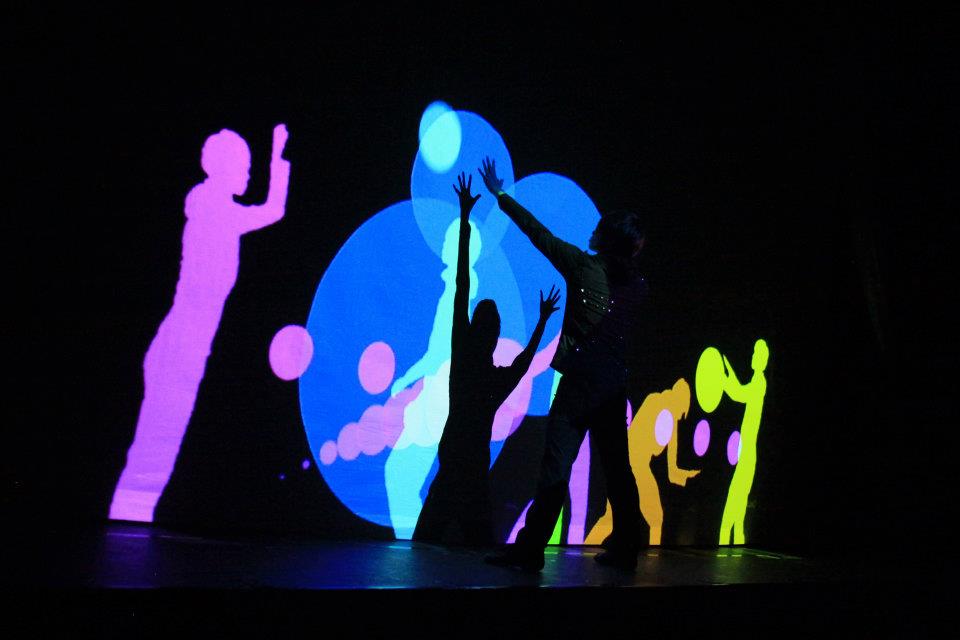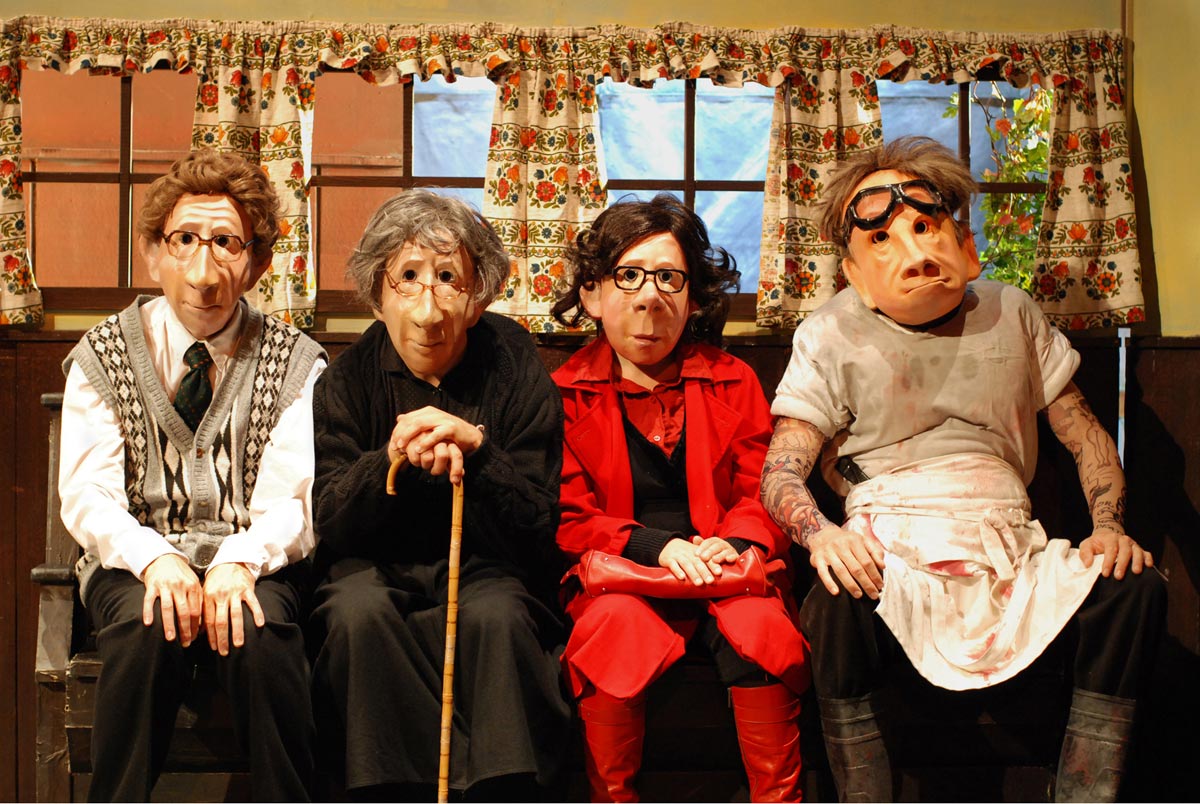The room – part stage-set, part immersive installation – seems primed for a hoe-down, or a good long yarn-spinning session around a campfire. The air is pungent with mint and woodchips. An intimate space has been cleared in the forest, and live music softly welcomes us into the moment.
Then the story begins, and with it comes a vertiginous sense of being lifted far from all that is familiar, or logical. This comes with no small degree of irony as the narrative, dreamlike and vaporous as it is, concerns an interminable February imposed by dark forces (also called February) who have levied a ban on flight, whether it be the act itself, or even the mere mention of the word.
Within this cold, crepuscular scenario birds fall from the sky, children vanish and a masked resistance force, The Solution, urge the inhabitants of the town to go to war with February. ‘Anything is possible when you start a war.’
The sense engendered, beyond the topsy-turvy illogic of the dialogue, is one of pervasive unease, resistance, struggle, and oppression. It could simply be depression that is being alluded to here – seasonally affected, or otherwise. But in the repeated calls to go to war, to resist, to refuse to accept a meaninglessly cruel and vindictive present, it is too tempting to conclude that the drive is more politically allegorical. The spirit of resistance is made manifest through defiantly creative acts; drawings of hot air balloons are pinned to trees and tattooed onto the arms of children. Little red balloons even feature in the fabric of the costumes. Similarly, within Michael John McCarthy’s excellent sound design arise songs of endurance and the plights of the downtrodden, including works by Low, The Handsome Family, Tom Waits and Stephen Foster.
Shane Jones’s novel was always going to provide a maddeningly complex source material to translate into a theatrical context. Grid Iron have done a remarkable job of pulling together poised performances, evocative soundscaping, understated technology, simple props inventively and thoroughly exploited, and have used the expertise gained from years of site specific works to thoroughly own the space and make it an integral part of performance.
There is a lingering sense, however, that the production is somewhat undermined by the wilfully forced lyricism of the material. The kind of post-modern, meta-fictive pseudo-surreal outpouring of ideas exemplified by Jones’s novel is so well worn that it becomes a distraction in itself to count the sources of his inspiration; Italo Calvino, Borges, Lorca, Angela Carter, Steve Erickson, Ben Marcus. The list goes on. And on. Even Jones himself took to citing many of the sources of inspiration within the body of his own text. Whether you are happy to sail along with all of this depends on whether you find the idea of a girl who smells of honey and smoke lyrical, evocative or mawkish.
The mouths of the dead fill with snow, and vines grow from spines to curl down from clouds and fill the sky. There is a portentous melancholy comprising overly familiar elements of ivy and ice and fire and masks and missing children and dreams of ascent, and so on, and so on. They are all beautifully evocative in their own terms but piled on so thickly these lyrical conceits somehow undermine any allegorical intent by ascribing more value to the sheer playfulness of it all.
The narrative line slackens when one becomes aware that really there perhaps is no clear and present danger after all and that the characters are struggling against themselves and each other. They have it within themselves to author their own escape from this darkness.
This is an impeccable production, make no mistake. And there is much here to marvel at as Grid Iron once more prove themselves to be one of Scotland’s most relevant, resourceful and committed companies. The performances from Vicki Manderson, Keith MacPherson and, especially, Melody Grove are solid. Karen Tennent’s set brilliantly frames and contains the dreamy internal logic of the tale and Simon Wilkinson lights the intimate space with subtlety, effectively shifting focus and mood with each passing fragmentary episode. I only find myself wishing that – irony upon irony – they could have done more to pin down and prevent their wayward source material from making so many flights of fancy.



